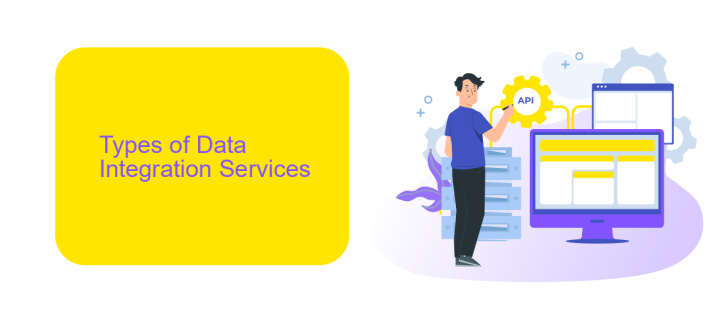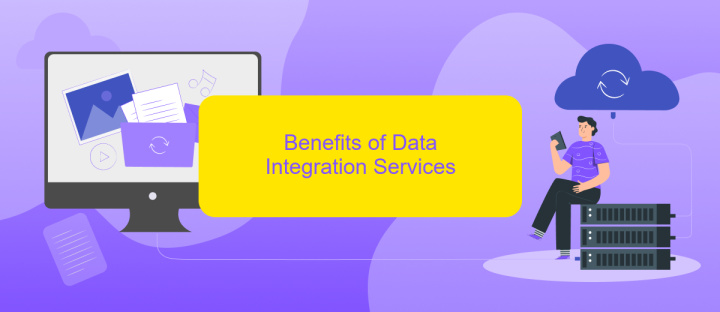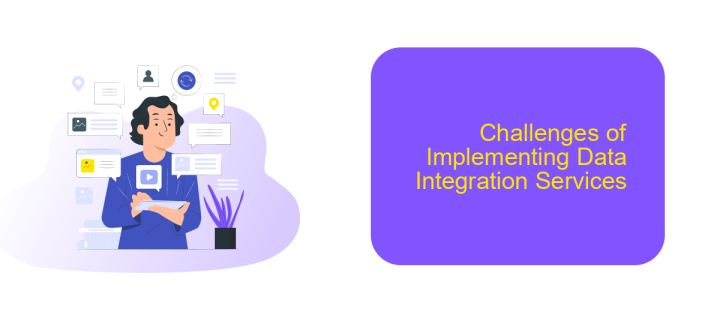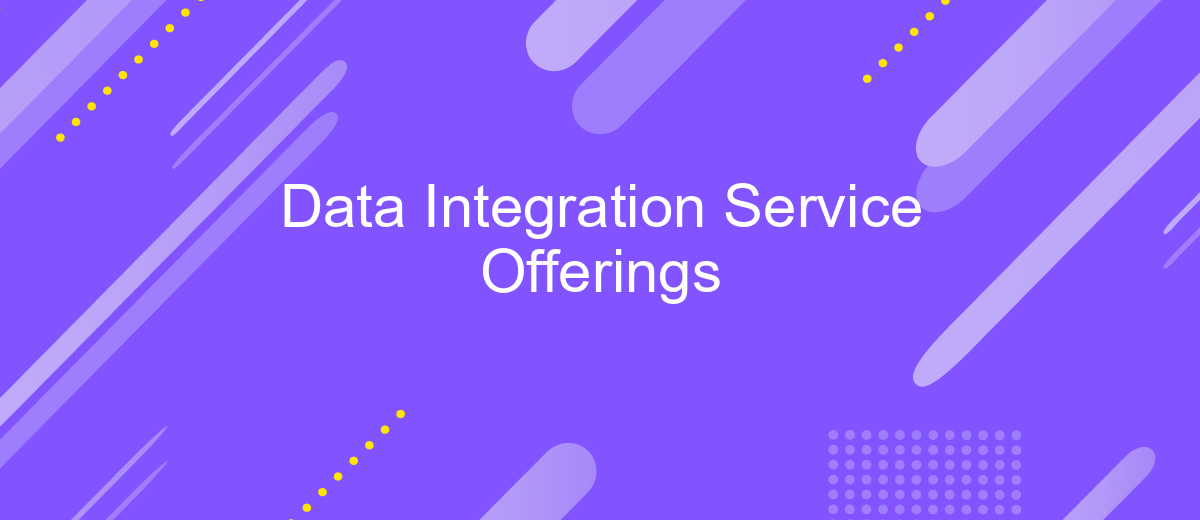Data Integration Service Offerings
In today's data-driven world, seamless integration of diverse data sources is crucial for informed decision-making and operational efficiency. Data Integration Service Offerings provide businesses with the tools and expertise needed to consolidate, manage, and analyze data from multiple platforms. This article explores the various services available, their benefits, and how they can transform your organization's data strategy.
Introduction
Data integration services play a critical role in modern business operations, enabling seamless connectivity between disparate systems and data sources. These services help organizations streamline their processes, enhance data quality, and achieve better decision-making capabilities.
- Automated data synchronization
- Real-time data processing
- Scalability and flexibility
- Enhanced data security
- Improved operational efficiency
One notable example of a data integration service is ApiX-Drive, which offers a user-friendly platform for setting up and managing integrations between various applications and services. By leveraging such tools, businesses can significantly reduce the time and effort required for data integration, allowing them to focus on their core activities and drive growth.
Types of Data Integration Services

Data integration services come in various forms, each tailored to specific business needs and technical environments. One common type is ETL (Extract, Transform, Load) services, which involve extracting data from different sources, transforming it into a consistent format, and loading it into a target system. These services are crucial for organizations that need to consolidate data from multiple databases, applications, or external sources into a single repository for analysis and reporting.
Another type of data integration service is real-time data integration, which focuses on synchronizing data across systems as it is created or updated. This is essential for businesses that require up-to-date information for decision-making and operational efficiency. Tools like ApiX-Drive offer user-friendly interfaces and automation capabilities to simplify the setup of real-time integrations between various platforms. By leveraging such services, companies can ensure seamless data flow and maintain data accuracy across their digital ecosystem.
Benefits of Data Integration Services

Data integration services offer numerous benefits that can significantly enhance business operations. By consolidating disparate data sources into a unified system, organizations can achieve a more comprehensive view of their data, leading to better decision-making and increased operational efficiency.
- Improved Data Accuracy: Integrating data from various sources ensures consistency and reduces errors, providing a single source of truth.
- Enhanced Productivity: Automation of data workflows, such as those offered by ApiX-Drive, minimizes manual data entry and allows employees to focus on more strategic tasks.
- Real-Time Insights: Real-time data integration enables businesses to access up-to-date information, facilitating timely and informed decisions.
- Cost Efficiency: Streamlined data processes reduce the need for multiple software solutions, cutting down on operational costs.
- Scalability: Data integration services can easily scale with the growth of the business, accommodating increasing data volumes and complexity.
By leveraging data integration services, companies can not only improve the quality and accessibility of their data but also drive innovation and maintain a competitive edge in the marketplace. Tools like ApiX-Drive make the integration process seamless, enabling businesses to connect various applications effortlessly and optimize their data management strategies.
Challenges of Implementing Data Integration Services

Implementing data integration services can be a complex and challenging endeavor. One of the primary difficulties is ensuring data consistency across multiple sources. Different systems often store data in various formats, leading to discrepancies and potential data loss during the integration process.
Another significant challenge is maintaining data security and privacy. As data moves between systems, it can be vulnerable to breaches and unauthorized access. Ensuring compliance with regulations such as GDPR and HIPAA adds another layer of complexity to the integration process.
- Data inconsistency and formatting issues
- Security and privacy concerns
- Compliance with regulatory requirements
- High implementation costs
- Technical complexities and resource constraints
Despite these challenges, solutions like ApiX-Drive can streamline the integration process by offering automated data transfer and synchronization between various platforms. By leveraging such tools, businesses can reduce the time and resources needed to implement data integration services, ultimately achieving a more seamless and efficient data flow.
Conclusion
In conclusion, the landscape of data integration services is vast and continually evolving, providing businesses with essential tools to streamline their data processes. By leveraging advanced integration platforms, organizations can ensure seamless data flow between disparate systems, enhancing operational efficiency and decision-making capabilities. The right integration service can significantly reduce the time and resources needed to manage data, allowing businesses to focus on core activities and strategic growth.
One such notable service is ApiX-Drive, which offers a user-friendly interface for setting up integrations without requiring extensive technical knowledge. Its versatile features enable businesses to connect a wide range of applications and automate data transfers effortlessly. As companies continue to adopt more digital tools, the role of efficient data integration services like ApiX-Drive becomes increasingly critical in maintaining data accuracy and accessibility. Ultimately, investing in robust data integration solutions is a strategic move that can drive innovation and competitive advantage in today's data-driven world.
FAQ
What is Data Integration?
Why is Data Integration important for businesses?
What are some common challenges in Data Integration?
How can automation help with Data Integration?
What should be considered when choosing a Data Integration service?
Strive to take your business to the next level, achieve your goals faster and more efficiently? Apix-Drive is your reliable assistant for these tasks. An online service and application connector will help you automate key business processes and get rid of the routine. You and your employees will free up time for important core tasks. Try Apix-Drive features for free to see the effectiveness of the online connector for yourself.

